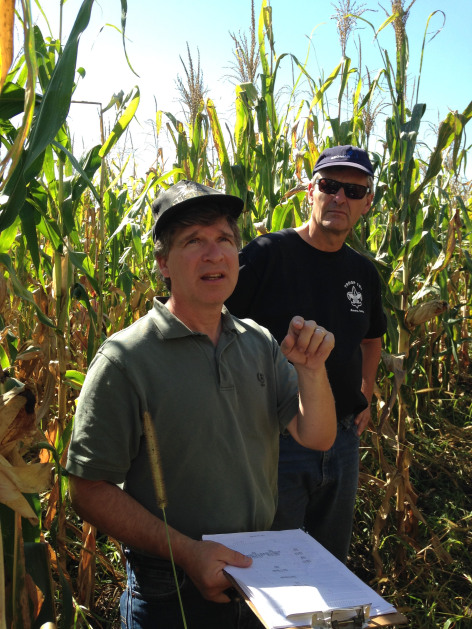AMES, Iowa – Organic agriculture practices eschew many synthetic fertilizers and pesticides, putting pressure on crops that conventional farming circumvents. That means an organic farmer who doesn’t use herbicides, for instance, would value crop varieties better suited to withstand weeds.
Enter Thomas Lubberstedt, a professor of agronomy at Iowa State University. Lubberstedt and a team of ISU researchers recently received a four-year, $1 million grant from the U.S. Department of Agriculture to advance organic corn varieties. By the end of the project, the team aims to have identified elite varieties that will improve the performance of corn under organic growing conditions.
“Our main goal is to figure out whether new genetic mechanisms can benefit organic field and sweet corn varieties,” Lubberstedt said. “We want to develop traits that can do well under organic conditions.”
Lubberstedt said the research could lead to organic corn with better resistance to disease, weeds pests and environmental stress.
Farmers who label their products as organic adhere to standards meant to restrict the use of synthetic inputs that include many fertilizers and pesticides in an effort to maintain environmental sustainability. Demand for organic products is growing as consumers become more concerned about how their food is produced and how it affects the environment, said Kathleen Delate, a professor of agronomy and member of the research team. Delate said the U.S. market for organic products reached $47 billion in 2016.
The ISU research team intends to address limitations imposed by organic practices by finding genetic mechanisms that lead to better-performing corn varieties that can still meet organic standards. Lubberstedt will focus on varieties that carry a genetic mechanism for spontaneous haploid genome doubling. This allows a corn plant to carry only the genes of its mother.
Researchers can use these haploids to create totally inbred genetic lines in two generations, whereas traditional plant breeding takes five or six generations to produce inbred lines, Lubberstedt said. These inbred lines are more reliable for evaluation in an experimental setting because they carry no genetic variation that could influence results. That makes it easier to identify lines with superior traits, he said.
Paul Scott of the U.S Department of Agriculture’s Agricultural Research Service and Bill Tracy of the University of Wisconsin also will contribute to the project.
Organic farming practices place additional demands on plants that conventional farming doesn’t. Lubberstedt and his colleagues hope they can help organic corn varieties better rise to the challenge.
